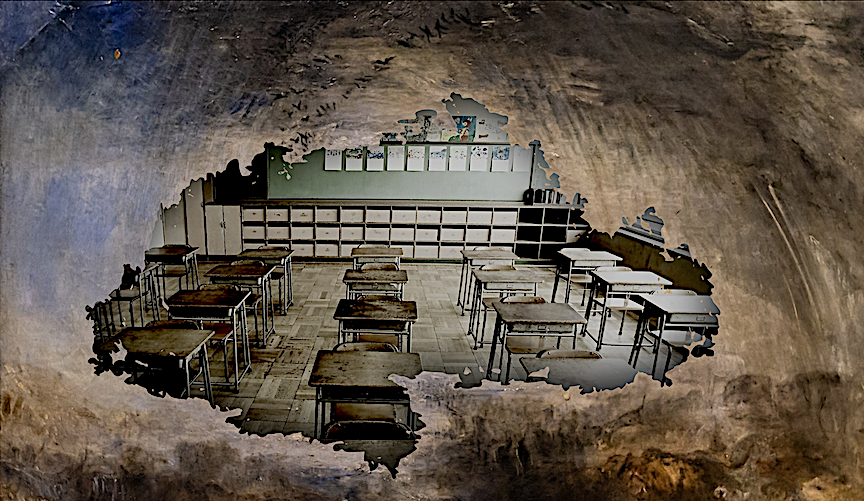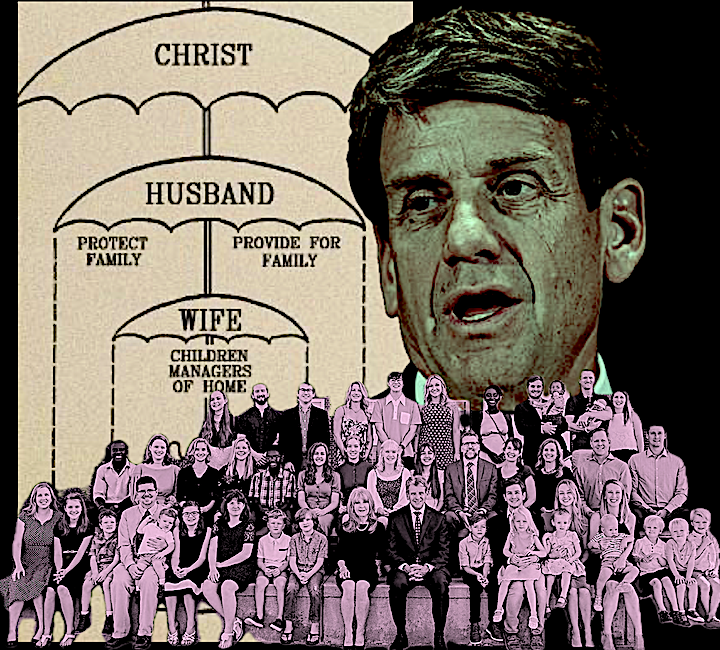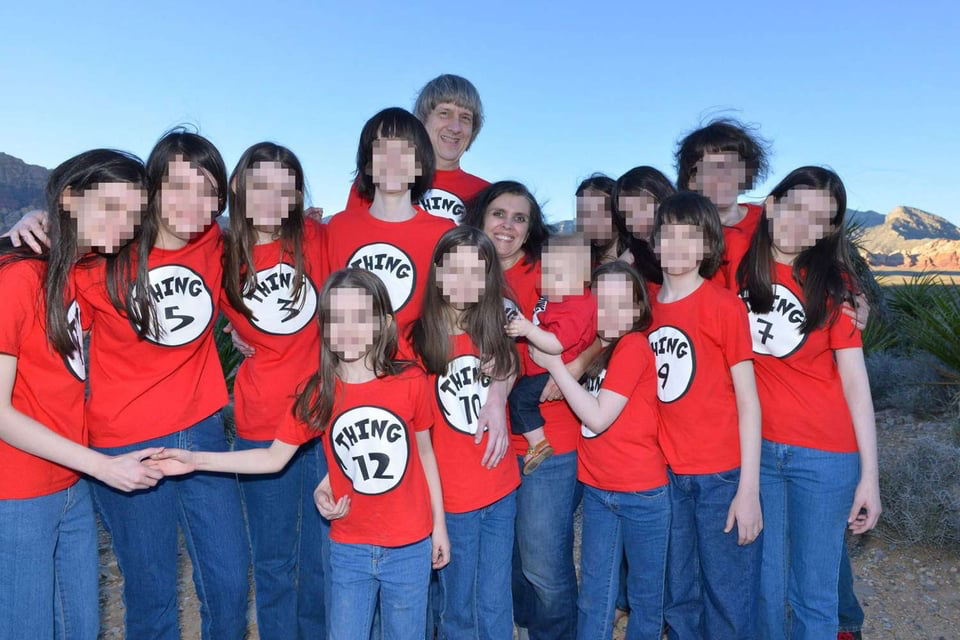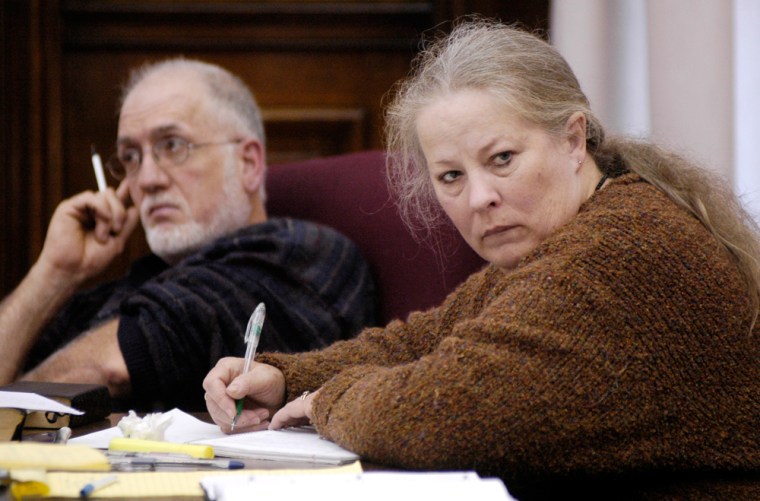Who Benefits from Destroying the Department of Education

This week, the Supreme Court ruled that the Trump Administration can go ahead with its ambitious, ruinous plan of gutting the Department of Education, firing untold employees and reshaping—or even destroying—the institution as it stands. Besides dismantling the DoE being one of the stated goals of Project 2025, it’s all of a piece with an agenda determined by the most cherished goals of the Christian Right—from making the population whiter, to overturning Roe v. Wade, to a determined attack on public education.
In my book, Wild Faith: How the Christian Right is Taking Over America, I laid out how the Christian right’s goal to dismantle public schools goes back even further than their desire to see abortion made illegal. Overturning Roe v. Wade was a keystone moment in the triumphant ascent of this sect; overturning Brown v. Board of Education, de facto if not de jure, is its crowning desire. In this adapted excerpt, I describe the rise of the homeschool lobby, some of its goals, and the terrifying amount of abuse that accompanies children vanishing from public sight.

According to R. L. Stollar, a child liberation theologian and cofounder of the now-defunct website Homeschoolers Anonymous, the political movement in support of homeschooling began in earnest at much the same time—and for much the same reasons—as the broader mobilization of the Christian Right. When the federal government began to enforce school desegregation in earnest in the 1960s, legions of southern white Christians began to pull their children out of public schools, leaving school systems across the South bereft of the majority of their students. A patchwork of parochial segregation academies sprang up—the words “Christian” or “Church” in a school’s name, according to NAACP field workers, were the surest signs of a segregation academy—and began to be supplemented by homeschooling. Compulsory laws requiring all children over the age of seven to be educated had blanketed the country by the early twentieth century. The legal status of homeschooling—instruction outside of public or recognized private schools—was precarious and uncertain.
But from 1950 onward, a trickle of court cases in different states began to grant exemptions from truancy laws to religious parents, allowing them to instruct their children via correspondence courses and independent Christian curricula. At the same time, within the more extreme sectors of the Christian Right, a growing foment against government-run schools, whose purported indoctrination of children was presented as an obstacle to true religious liberty, began to encourage the Christian faithful to remove their children from the system. Still, homeschooling was rare and perpetually in conflict with state laws against truancy and educational deprivation.
It was in the Reagan eighties that the institution that would provide the legal armature for the homeschooling movement was born. Michael Farris, a blue-eyed, sharp-jawed Christian lawyer whose status as a colossus in the movement for "parental rights" would grow to mythic status over the ensuing decades, decided, after withdrawing his own children from the school system, to use his legal acumen to enable other parents to do the same. While working as an attorney for Concerned Women for America, an organization that fought tooth and nail against the Equal Rights Amendment, Farris cofounded the Home School Legal Defense Association (HSLDA), an institution that would come to exercise influence over the lives of millions of children, all without being known to most people—which is just how the Christian Right likes it.

By the mid-1980s, the HSLDA had a Washington, DC-area office and full-time employees and began to hammer at the network of laws that kept schooling in schools. The rhetoric of the HSLDA about a parent's constitutional right to educate their children as they wished found a home with Republican state legislators, who were willing partners in overturning largely antiquated truancy laws that had been set into place between 1850 and 1929. Deftly navigating this complex web of laws, the Christian Right steamrolled from coast to coast: by 1992, homeschooling was legalized in every state.
The homeschool movement transformed education into a province of the domestic sphere, whose ultimate arbiters were parents who had been divinely appointed to train up their children. According to Harvard Law School professor Elizabeth Bartholet, conservative Christians still make up the majority of homeschoolers in the United States, with estimates of the number of children homeschooled for primarily religious reasons ranging up to 90 percent of all homeschooled children in the country.
Born out of the crucible of Christian anger, HSLDA is unabashed about its faith-based origins. It may support parents of every sect or none, but its true constituency is clear. In 1995, testifying before Congress about the spread of homeschooling, Farris said that his work had been to change the laws for a higher purpose. Parental rights, he said, were as fundamental as the freedom to worship, and as sacred. The rhetoric of homeschooling parents indicates that this is part of a strongly activist agenda: 75 percent of parents reported they chose homeschooling because they wanted "to provide moral instruction." Nearly 3 million children get their only education at home, scattered across a country whose laws about home instruction are slipshod and bare, not so much cracks as abysses for children to fall through.
The laws are intentional; they were systematically defanged into laxity. They are nearly universally staggeringly laissez-faire. They have been pushed into place over decades by a small, determined, largely Christian lobby, whose watchword is "parental rights" and whose actions are as deliberate and unmistakable as shackles on a child's wrists. In this framework, a parent has rights, but a child is property.
The Sword and the Sandwich is a newsletter about deadly serious extremism and serious sandwiches. Please consider supporting this work with
a paid subscription.
The Coalition for Responsible Home Education is a small nonprofit founded in 2013 by home school alumni, with a mission to address the use of homeschooling to abuse and isolate children. CRHE keeps a grim little ledger tucked away in a corner of its matter-of-fact website. It's a list of children who have died while being homeschooled. It is incomplete and focused primarily on cases that occurred after 2000, when internet usage became more commonplace and cases easier to find. Nonetheless, from 2000 to the present, 211 fatalities have been logged onto that little spreadsheet. Where available, a tiny portrait of the child adorns his or her ledger entry.
Away from teachers, school counselors and nurses, and the scrutiny of outsiders, it is easier to harm a child, even to kill him by inches. Abuse has its own logic, the hot clockwork of cruelty, and it runs best undisturbed. Without external intervention, an abusive home can run on that logic all the way to the end. Such was the case of Stephen Hill, whose parents, Jay and Linda Hill of the aptly named White Settlement, Texas, took him out of school at age nine. Four years later, the boy was found by emergency responders unconscious and in shackles. At age thirteen, he weighed only fifty-five pounds. According to an appeals court judge, "the first impressions of the three EMTs that attended to Stephen were vivid ones. They each believed he was in the final stages of a long-term illness or terminal disease such as cancer or AIDS. None of the EMTs recognized Stephen's physical appearance as that of a thirteen-year-old boy. They each believed him to be only six to eight years old. Stephen was taken to the hospital where he remained comatose until his death."
Linda Hill said she'd shackled Stephen for eighteen months prior to his death to keep him from getting at the food, that she'd resorted to starving him because hitting didn't seem to work anymore. In her 911 call, when she said the boy wasn't breathing right, she said she was afraid she wasn't a very good parent. By the time he died thirteen days later, on November 16, 1991, she had recanted her confession. In any case, it was too late for Stephen Hill.
Of course, not all homeschooling stories are stories of torture, of chains and starvation or whipping with hosepipes, burns and scalds and shattered skulls. Some children escape. There were the Turpin Thirteen, who became the subjects of lurid tabloid coverage when one of the thirteen children—Jordan, who was seventeen but looked eleven—escaped and called the cops on a smuggled-out, deactivated cell phone. Their parents were Pentecostal Christians; in their prior residences, neighbors had found feces, mounds of garbage, and beds with ropes tied to them for restraining the children. By the end, they were tied up almost all the time, reduced to eating mustard and ice when they could get it and almost never allowed to go outside.

The oldest of the Turpin children was twenty-nine when authorities descended on the home in 2018; all thirteen children spent two months in the hospital, suffering from cognitive delays, heart damage, and other symptoms of severe malnutrition. Their parents, David and Louise Turpin, were sentenced to life imprisonment in 2019 on fourteen felony counts, including torture, cruelty to dependent adults, child endangerment, and false imprisonment. It had all started when Christ had called on David and Louise to have as many children as they could. It had continued because under the lax regulations governing homeschooling in the United States, no one had looked into a house where shackles and starvation were the only means of instruction.
There are also other, quieter stories of deep neglect. There are children who cannot read because they were homeschooled. There are children trained not to believe in evolution and children whose knowledge of history is as abbreviated and propagandistic as a KKK pamphlet. There are children left to do workbooks on their own by busy parents with many other children to care for, to fast-forward educational DVDs as they will, children for whom schooling is an occasional treat, children who by dint of never having a benchmark of comparison don't know what they don't know until they move into a world for which they were never prepared.
Over the years, the HSLDA, prompted by high-profile child abuse cases, moved beyond its original mandate into a broader societal project: utilizing its legal resources to insulate parents against child abuse charges and weakening state child-welfare agencies. By the mid-1990s, the HSLDA was routinely providing legal support to homeschooling families accused of child abuse. In the 2000s, the organization announced to its members that it would fight against new or expanded child welfare laws, which, in the organization's conception, infringed on the absolute nature of parental rights. In 2005, the HSLDA took on the case of Michael and Sharen Gravelle, an Ohio couple who had adopted eleven children, some with disabilities, and kept them at home to be schooled. In September 2005, sheriff's deputies found nine homemade cages of wood and chicken wire that reeked of urine, some with wired-in alarms, in the home. The children told authorities that they were made to sleep in the cages at night; they talked about being hit with boards and having their heads held under freezing water as punishment.

HSLDA attorney Scott Somerville told the Akron Beacon-Journal, "[Michael Gravelle] told me why they adopted these children and told me the problems they were trying to solve. I think he is a hero." On its website, the HSLDA states that its mandate "extends to helping families whose decision to homeschool subjects them to suspicions of abuse or neglect," although it officially condemns physical abuse.
The organization has nonetheless continued to push for yet more deregulation in education and for the weakening of child welfare laws in all states. In 2018 alone, the HSLDA spent nearly $2.4 million on legal advocacy, education, and protection for homeschooling parents. Within the world of municipal and state legislation-and with the aid of a network of churches and statehouses across the country—a few million dollars can go a very long way when judiciously applied and multiplied year upon year. Cases in which judges reach publicized judicial decisions represent a fraction of the parents represented by the organization; in a 2020 report, the HSLDA claimed to have participated in 797 cases that year on behalf of homeschooling parents.
The HSLDA has consistently used its legal influence to weigh in on child abuse cases and legislation, well beyond the specific provenance of homeschooling. In 2008, it went to the mat against a proposed revision in California legislation. Elaborating on an established law that made the causation of "unjustifiable physical pain or mental suffering" on a child illegal, the amended bill would have added specifics, allowing juries to consider whether a defendant had used implements ("including, but not limited to, a stick, a rod, a switch, an electrical cord, an extension cord, a belt, a broom, or a shoe"), in addition to throwing, kicking, burning, or cutting a child or interfering with their breathing.
In the Washington Times, HSLDA's then co-president, Michael Smith, wrote a passionate screed in opposition to the law's amendment and for the right of parents to strike their child with implements. "If this law passes, it will have a chilling effect on parents who reasonably exercise discipline through the use of spanking with an implement," he wrote. "Although this is not a home-school issue, it is a parental rights issue. One of the foundations for the right to home-school is based upon the fundamental right of parents to direct the upbringing and education of their children."
The amendment failed.

Public education has many virtues, the chief one being providing the tools of learning at no cost to families. But another of its traits is the way it breaks down homogeny, forcing children to be in a community with others unlike them, of different races and different creeds. The quality of public school teaching varies by district and by classroom; that of homeschooling varies by the individual home. Each parent has their own parenting style, their own number of children, their own inclination to dole out the rod of punishment as an academic tool, their own level of teaching ability, their own amount of money or time, their own struggles with substance abuse and dependence, their own family systems of support or lack thereof. As Elizabeth Bartholet pointed out in a 2020 article for Arizona Law Review, many homeschooling parents do not have the academic qualifications to teach their children complex topics. Some parents, she pointed out, are not interested in educating their children or remove their children from school simply because they have been accused of truancy or to avoid scrutiny over child protection laws.
Public school isn't perfect, but it's public; it ensures that children can't be hidden away and deprived of an education. Public school teachers, counselors, and nurses are mandatory reporters of child abuse. Moreover, public schools exist within a system, however flawed, that has accountability built in, in the form of broader statewide and national bureaucracies. Homeschooling, under the lax laws of the United States, is designed to erase that accountability—and render children invisible.
What do homeschooled children learn under the aegis of fundamentalist Christianity? How do they learn to see the world and react to it once they leave the bounds of home? Within the world of Christian homeschool education, there are a variety of curricula, each held to as tightly as any church or denomination. There are the books churned out by Bob Jones University Press, the Abeka courses, the wisdom booklets of the Institute in Basic Life Principles, the Young Earth Creationism-infused materials of Answers in Genesis, the "Christ-centered, family-oriented" materials of Sonlight Curriculum, the "classical Christian education" of Tapestry of Grace. Each purports to cover the areas required by state law, with mixed results; all are grounded in a Christian, patriarchal worldview, which grounds worldly knowledge in the framework of godly values. They instruct children to be separate from the world even as they lay out the perfunctory requirements of being part of it.

But in the Christian realm, success in the homeschool environment entails a different goal than simple happiness or even intellectual success.
Christian homeschoolers who distinguish themselves are drafted as child soldiers in the broader spiritual war. Those who excel in Christian homeschool may find themselves elevated within the insular institutions that cater to religious home education. It is these elites that Michael Farris calls the "Joshua Generation" of young homeschoolers, whose role is to "engage wholeheartedly in the battle to take the land" for the Christian faith. There are some in every elite law school who wind up as clerks for Supreme Court justices; who are groomed for office on every level of government; who are the instruments of power.
One vivid example is Alex Harris, the son of two passionate advocates for homeschooling who educated him and his six siblings at home. Harris wound up attending Harvard Law School and becoming a law clerk for Supreme Court justices Neil Gorsuch and Anthony Kennedy. "The Joshua Generation is an influential concept—one I embraced most of my life," he wrote for the Gospel Coalition, "that my generation would rise up and attain positions of power and influence in government, law, and beyond, and in so doing help restore the United States as a Christian nation."
The youth-targeted political program makes for a potent force of spiritual and political warriors. And there are plenty of organizations designed to help. The National Christian Forensics and Communications Association (NCFCA), for example, is a nationwide speech and debate organization founded in 1997 "with the goal of training up Christian home school students to learn the skills necessary to reach their world with God's truth." Nowadays, NCFCA runs programs that reach thousands of students per year, training them to be polished, conservative "ambassadors for Christ."
Nationally, the organization TeenPact offers seminars, tours of the Capitol, political communication workshops, and political leadership training for students ages eight to nineteen, attracting a large audience particularly among Christian homeschoolers. PursueGod.org, an evangelical youth education resource, encourages Christian teens to read John 15:18 ("If the world hates you, remember that it hated me first") and speak out against abortion with ardency. Each year, the Texas Youth Summit, routinely attended by conservative politicians and pundits such as Ted Cruz, Matt Gaetz, and Candace Owens, offers free admission to those twelve to twenty-six years old and provides both religious and political education explicitly rooted in Christian values to thousands of participants. Its slogan: "Empowering youth to be catalysts to win the Culture War." It is both a promise and a threat.
Certainly, the right-wing establishment has sat up and taken notice of the rapid expansion of the homeschool lobby and its growing power as generations of alumni come into their own as adults. Donald Trump, a careful arbiter of fair winds and cultivator of allies, paid special attention to homeschooling parents in a statement in September 2023. "As President, it was my honor to support America's homeschool families—and to protect the God-given right of every parent to be the steward of their children's education," he said in a video. "To every homeschool family, I will be your champion!"
The power brokers of the right wing and the homeschool lobby know that kids who don't die grow up. An army can't march without soldiers, and soldiers are best instructed in a totalistic environment, one that isolates them from outside influence, keeps them within homes that are shaped by authoritarian faith. Some children die, forming part of that terrible list of casualties; some emerge from their formative years with no education to speak of; all have endured what they did under the shield of parental rights, and privacy. Some of them will live to be the future of the faith militant.

-
Frightening...like just about everything else happening in this country now.
-
This would be a much more credible article if you distinguished between the extremist homeschoolers and all of the other homeschooling families, many of whom are very supportive of the public school system (and who often combine public school with other educational options to create an appropriately individualized program) - or who live in places like Texas or Oklahoma where they homeschool because they don't want their children to become scientifically illiterate homophobic bigots.
I'm all in favor of keeping kids safe from the adults who are supposed to educate and protect them, but sometimes it's the homeschoolers who are protecting their kids - kids who have special needs, or face racism in the classroom, or are bullied and abused by students and teachers. You do a disservice to so many kids and the adults who are struggling to do the best they can for kids who need them. Not every child fits in the same mold, and trying to force that can be just as abusive as the situations you are describing.
Maybe someday you will acknowledge that the homeschooling world is far more diverse than you have been willing to cop to. You might find that many of the other homeschoolers are your allies in keeping children safe and educated. You don't have to be one more obstacle for parents who are already fighting to get the needs of their children met.
... It's a piece about specific organizations and their role in the broader cultural ecosystem. Not a piece about all the orgs that do homeschooling and their place in the USAian education landscape.
If you want a piece on the latter, maybe you should write that piece instead of being disappointed that this isn't the piece you wanted it to be.
Oh, I have many times...papers, books, policy work. And I've noted (with examples) how this hurts people who should be allies. All these years on I had hoped that message would get through. Guess not. 🤷♀️
-
As someone who was homeschooled, I just want to say thank you for writing this. Children must be treated as full persons and not as property
-
So, if we support parental rights, to allow parents to homeschool their children, we also support parental rights when it comes to healthcare choices, like choosing gender-affirming care for their children -- instead of the state taking that right away from parents, yes? Seems like many of these groups only want certain parental rights supported, or rather they only certain parents to have rights. Hypocrites.
Yup.
Add a comment: